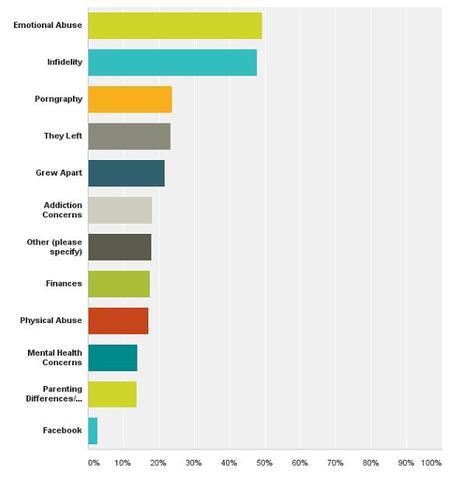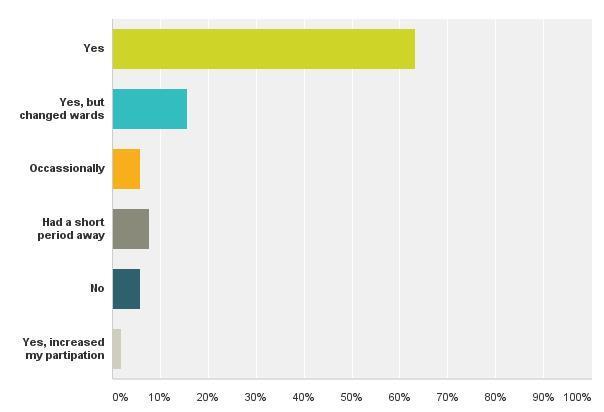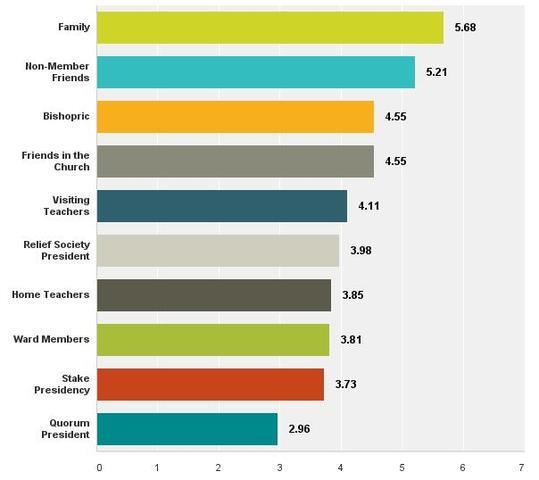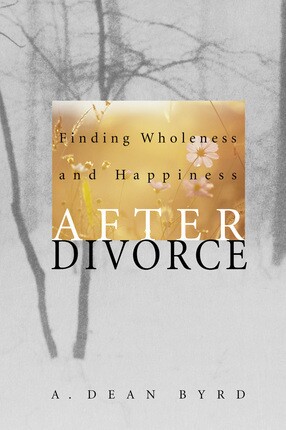The following article originally ran on LDS Living in May 2016.
Given how central the family is in Church doctrine, divorce in the Latter-day Saint community is a sensitive and complicated issue. To find out more about how Latter-day Saints experience divorce, I surveyed more than 1,000 active members who have been divorced or are currently going through the process.
For Latter-day Saints, families are not only the fundamental unit of society but also of the Church. With the comforting doctrine that we can be sealed to our loved ones for eternity, divorce is a conclusion drawn with heavy hearts.
To help us understand what it’s like to be divorced in such a family-oriented church, I conducted a survey of 1,062 Latter-day Saints who have experienced divorce. It was truly amazing to see how sincere and willing to respond these participants were—which only emphasizes how much we still have to learn about divorce among Latter-day Saints.
There is much to appreciate about the honesty and vulnerability of the responses that were shared. These are truly touching and delicate experiences that members of the Church endured as they divorced.
► You'll also like: How to Talk to Children About Temple Covenants After a Divorce
These survey results provide an opportunity for personal reflection. All of us know someone who has been divorced. As you read through these results, pay attention to your own inner voice and emotional responses. Ponder what kind of support you have been, are, and can be to those you know in the Church who have experienced or are experiencing a divorce.
Why do divorces happen among Latter-day Saints?
The reasons for a divorce were many and varied. (Respondents could select more than one answer.)

- Emotional Abuse, 49%
- Infidelity, 48%
- Pornography, 24%
- Spouse Left, 23%
- Grew Apart, 22%
- Addiction Concerns, 18%
- Finances, 17%
- Physical Abuse, 17%
- Mental Health Concerns, 14%
- Parenting Differences/Struggles, 14%
- Facebook, 3%
- Other: 18% (This included: Anger, Apostasy, Sexual Abuse, Health [sick/disabled partner or child], Criminal Activity, In-Law Interference, and Homosexuality.)
How often did the couples seek counseling?
Most couples tried going to counseling to support or save their marriage, but perhaps not to the degree we would expect:

- 42% went a little
- 17% went a lot
- 33% said their spouse didn’t want to go
- 3% said that they didn’t want to go
- 5% couldn’t afford counseling services
Note: The definition of what qualified as “counseling support” is unique for those surveyed and, in the course of the survey, seemed to be open to interpretation. Some people counted seeing their bishop as counseling support and never saw a professional.
The Expert Says
Licensed marriage and family therapist Dr. Jonathan Swinton of Salt Lake City, Utah, gives further insight on Latter-day Saint couples that seek counseling:
“The percentage of people that really engaged in couples counseling (beyond a few sessions) is likely lower than national averages. . . . “National studies have shown that 70–75% of couples that do attend couples counseling are able to salvage their relationship, and that typically takes more than a few sessions. The statistics in the LDS survey indicate that only 17% of the couples attended counseling a lot. I find it interesting that most of the respondents did not actively pursue adequate counseling. I certainly see couples where divorce may be the best option. However, I find it a bit sad that the majority of those that divorced didn’t try counseling when studies have shown how effective it is. I wonder how many of those marriages could have been salvaged.”
Does divorce affect church activity?
Most respondents said they were active at the time of their divorce:

- 83% active
- 9% somewhat active
- 8% less active
Many continued to attend church after their divorce:

- 63% continued going to church in the same ward
- 16% continued going but went to a new ward
- 6% occasionally went
- 8% had a short period away
- 6% stopped going
- 2% increased participation
Some shared why their participation decreased:
“The sisters of the ward blamed me for the divorce and told my girls that it was my fault. My girls did not want to go because of the way the adult sisters treated them.”
While others shared what kept them going:
“I wonder if I would have continued going to church if I [didn’t] have children. I wanted them to be strong in the gospel.”
“Church helped me focus on the positive parts in life instead of what the negatives were.”
“During my separation, I clung to the Church more than I ever had before.”
Do callings change as a result of divorce?

- 46% - Yes
- 54% - No
The top reason for a change in calling was relocation. Many others had a different reason for their change in calling. For example, they wanted to focus on home life or to take care of children. Others believe they were released because they were now a bad example, or because local church leaders didn’t want a divorced person in that role. Some noted that they asked for a break because of the new demands they faced after their divorce.
Where do divorced members get support?
Note: At the time this survey was conducted, the Church had not yet announced the ministering program that replaced home and visiting teaching.
Participants were asked to rank from 1 to 7 the support they felt from various Church-related groups (1 being not at all supportive and 7 being very supportive). This is the average score out of 7 for those support systems:

- Family, 5.68
- Non-member friends, 5.21
- Bishopric, 4.55
- Friends in the Church, 4.55
- Visiting Teachers, 4.11
- Relief Society President, 3.98
- Home Teachers, 3.85
- Ward Members, 3.81
- Stake Presidency, 3.73
- Quorum President, 2.96
The Expert Says
Divorce is the second-most stressful life event, with death of a spouse being the most stressful, according to the Holmes-Rahe Stress Inventory. Those who experience a divorce need a lot of support from others to help manage those high levels of stress.
► You'll also like: What (and What Not) to Say to the Recently Divorced
Dr. Swinton agrees. “I was sad to see that ward members and [ministering brothers and sisters] were so far down on the list of where support comes from,” he says. “This is sad because what someone going through a divorce needs the most is support from those around them. I worry that discomfort with the situation unnecessarily impacts many from engaging in providing needed support.”
You’ve Got a Friend
Many survey respondents noted that they felt most accepted and supported by nonmembers because they were not judgmental and there is less of a stigma around divorce in the outside world.
One divorcee noted, “Friends outside church did not treat me like a sinner for getting a divorce. They just wanted to help.”
Member friends primarily provided support around the spiritual connection that could not be found with non-members. As one woman noted, speaking of her Latter-day Saint friends, “[I had] great support from my friends, who were divorced as well.”
However, some participants didn’t have that same support system from their church friends.
“It's true when they say that you really do find out who your real friends are when disaster strikes. Many, when they saw me coming, would look the other way,” one participant shared.
Another shared a similar experience: “They stopped inviting me to every activity, shopping trip, dinners, everything. I became a pariah. I tried to understand that they just didn't know how to deal with a situation like this.”
The Expert Says
“Divorce may be more taboo for many,” explains Dr. Swinton. “There is more of a stigma associated with it. In the Church, we value family relationships so much (rightly so) that many don’t know how to deal with divorce because it seems incongruent with the foundation of the Church, which is the family. Outside of the Church, there is a disturbing trend in the devaluation of the family. This may make many more supportive of divorce when it happens outside the Church.”
Ward Members: Too Wary?
Those divorcing tended to perceive ward members as a group that was unsupportive, fearful, and judgmental. As several respondents put it:
- “Many ward members avoided me like the plague because they simply didn't know what to say to me. I felt like I was contagious, and I think that they thought I was!”
- “My children were ostracized.”
- “Church is a family-orientated organization, and when your family splits, it is difficult to find your place.”
Why do ward members seem to have such a hard time connecting with divorced members? Dr. Swinton says, “[In Church culture], divorce is a bit of a taboo issue that many don't know how to deal with, so the result is to avoid.”
However, avoiding divorced members only adds to their troubles. And making an effort to help, even if it’s awkward, can pay major dividends, as one respondent shared: “I was brought to tears many times at the amazing support I received from so many members.”
What Divorced Members Wish You Knew
Given the experiences that the participants had, they made recommendations to ward leaders, Stake leaders, fellow members, and ministering brothers and sisters on how to handle future divorcing members. Here is some of their best advice:
- “A simple smile or hello . . . would have helped.”
- “[It] would be nice if [others] had some idea of how devastating divorce is and could have helped me get through the grieving process. [They] could have helped me realize that there is more to being a member of the Church [than] being in a traditional ‘families are forever’ kind of family.”
- “[Acknowledge] me as a person. [Have] concern for my children, especially Young Men and priesthood leaders. For example, take my sons to general priesthood meeting.”
- “Ask if anything [is] needed. Pay attention to the children who are going through a really bad time. Don’t judge; be supportive.”
- “[Give me] spiritual support. . . . Give me messages about strength and faith; help build my testimony.”
- “Have activities where all can be involved, regardless of marital status.”
- “Comments in classes should always also cover how the topic is relevant to those who are not in the ideal family situation.”
► You'll also like: 10 Things Latter-day Saint Singles Wish You Knew
► You'll also like:6 Things Every Latter-day Saint with Divorced Parents Should Understand
The Expert Says
What can Latter-day Saints do to be more supportive of divorced members?
Dr. Swinton says, “Love them. Even if the situation is uncomfortable or you don’t know how to react, love them. If you worry that being supportive somehow condones something you don't approve of, remember that showing love does not mean you are condoning something. Don't let discomfort prevent you from providing support that may be needed. Also, provide long-term support. Divorce can be very stressful for years.”
What Can We Do?
“Few things in life are as difficult as divorce,” Dr. Swinton shares. “We as friends, neighbors, ward members, [ministerers], family, etc., should show Christ’s love. People need all the love and support they can get as they weather a divorce.”
In a message to divorced members, Dr. Swinton continues, “If you have experienced divorce, don't beat yourself up or feel you are lesser in any way. Relationships are really difficult. Just do your best. The Lord still loves you and will always be there to support you.”
Josh Lockhart is a husband, father of two, and a Canadian Certified Counsellor based out of Kimberley, BC, Canada. He works as a Mental Health Clinician for Ktunaxa/Kinbasket Child & Family Services, and as needed for LDS Family Services in the East Kootenay's. He has also been a columnist for 8+ years in local small papers. Learn more at joshlockhart.blogspot.ca.
For more on this topic, check out Finding Wholeness and Happiness after Divorce.
In this collection, a variety of mental health professionals and others present their Latter-day Saint perspectives on divorce and related issues. The book discusses women and divorce, men and divorce, children and divorce, dating again, blended families, remarriage, marriage counseling, and so on. All but one of the contributing authors can speak from personal experience about divorce. This book, which will help couples contemplating divorce and men and women who are working through divorce, offers guidance, ideas, comfort and gospel perspective for those struggling through the painful experience of divorce.









